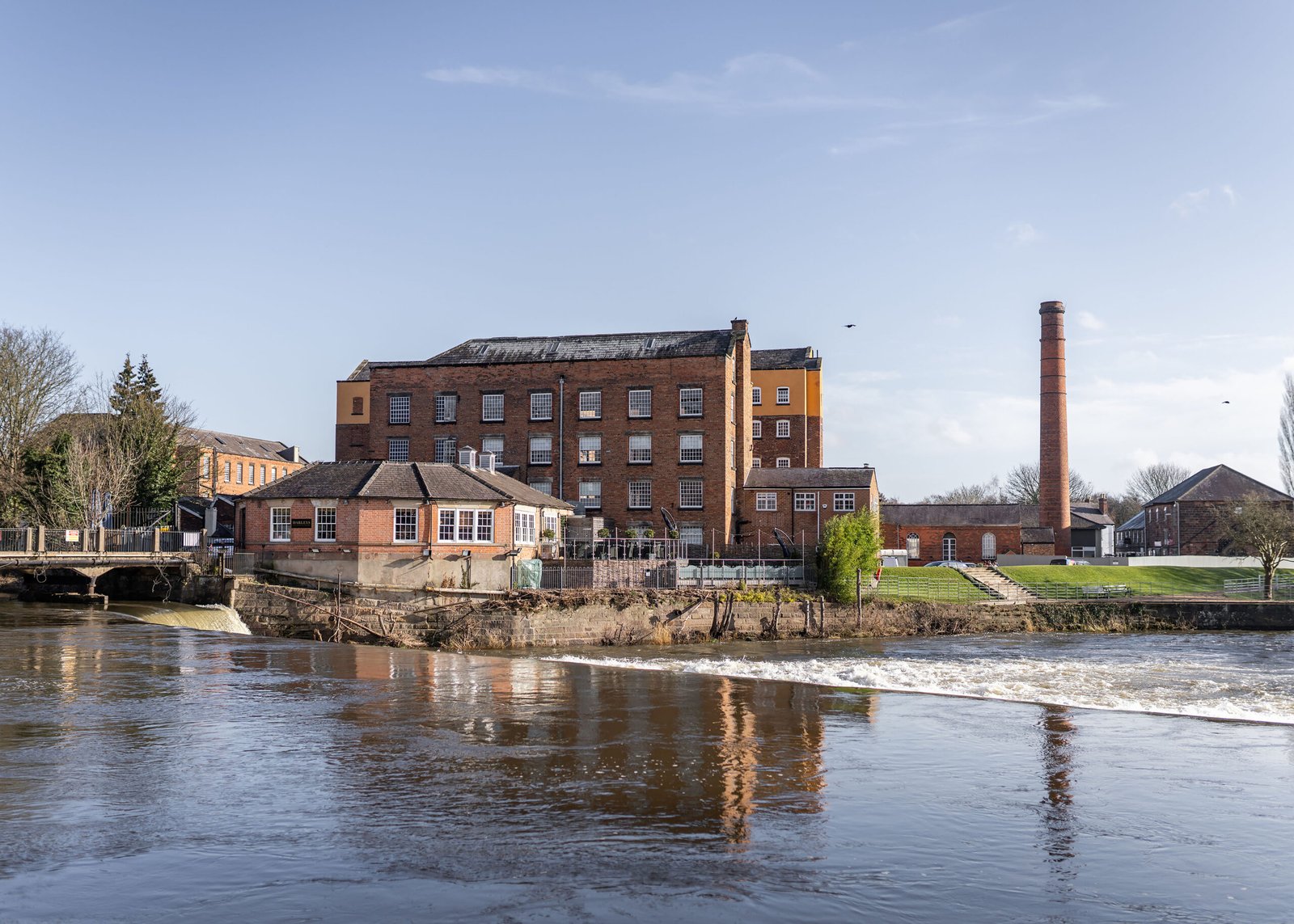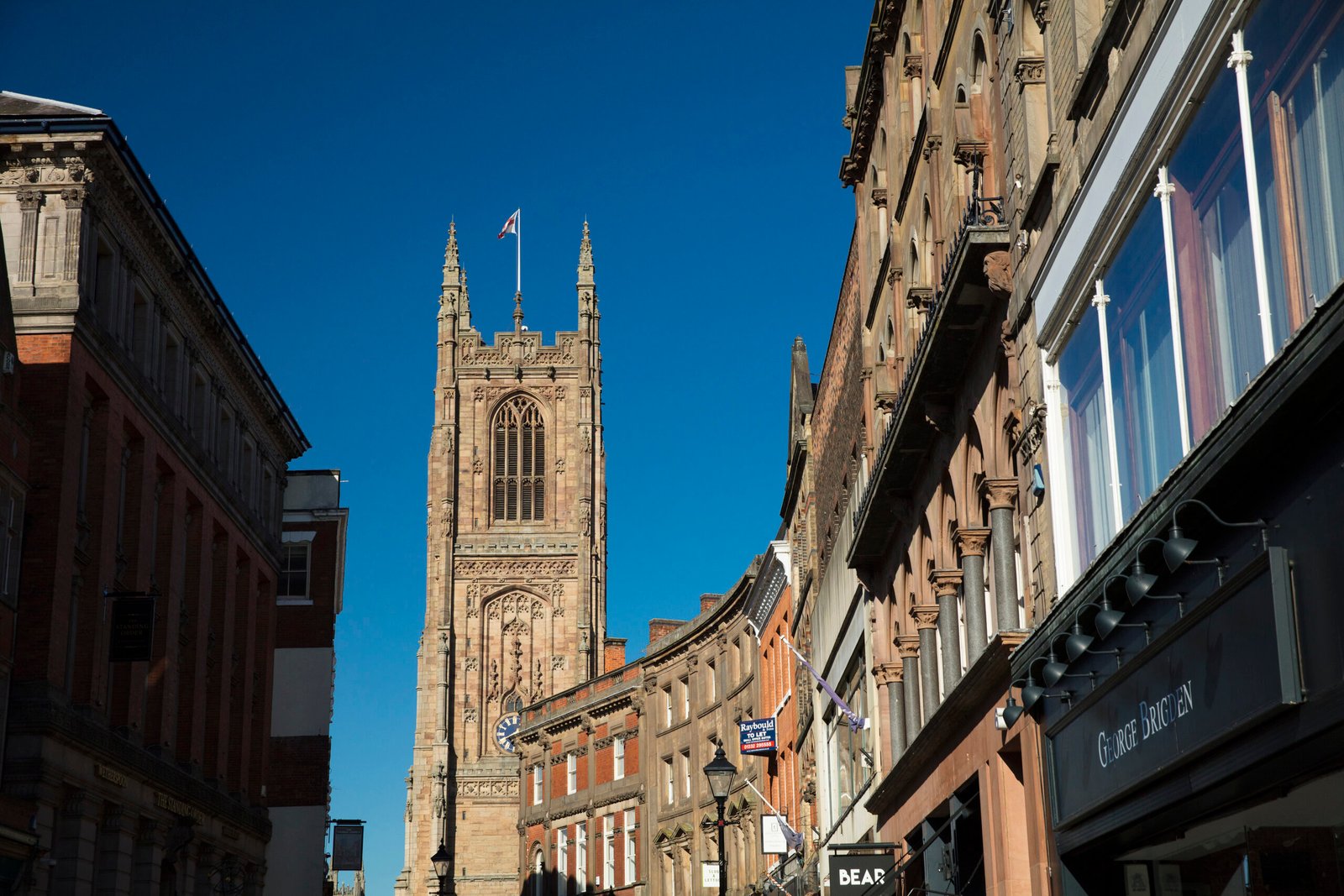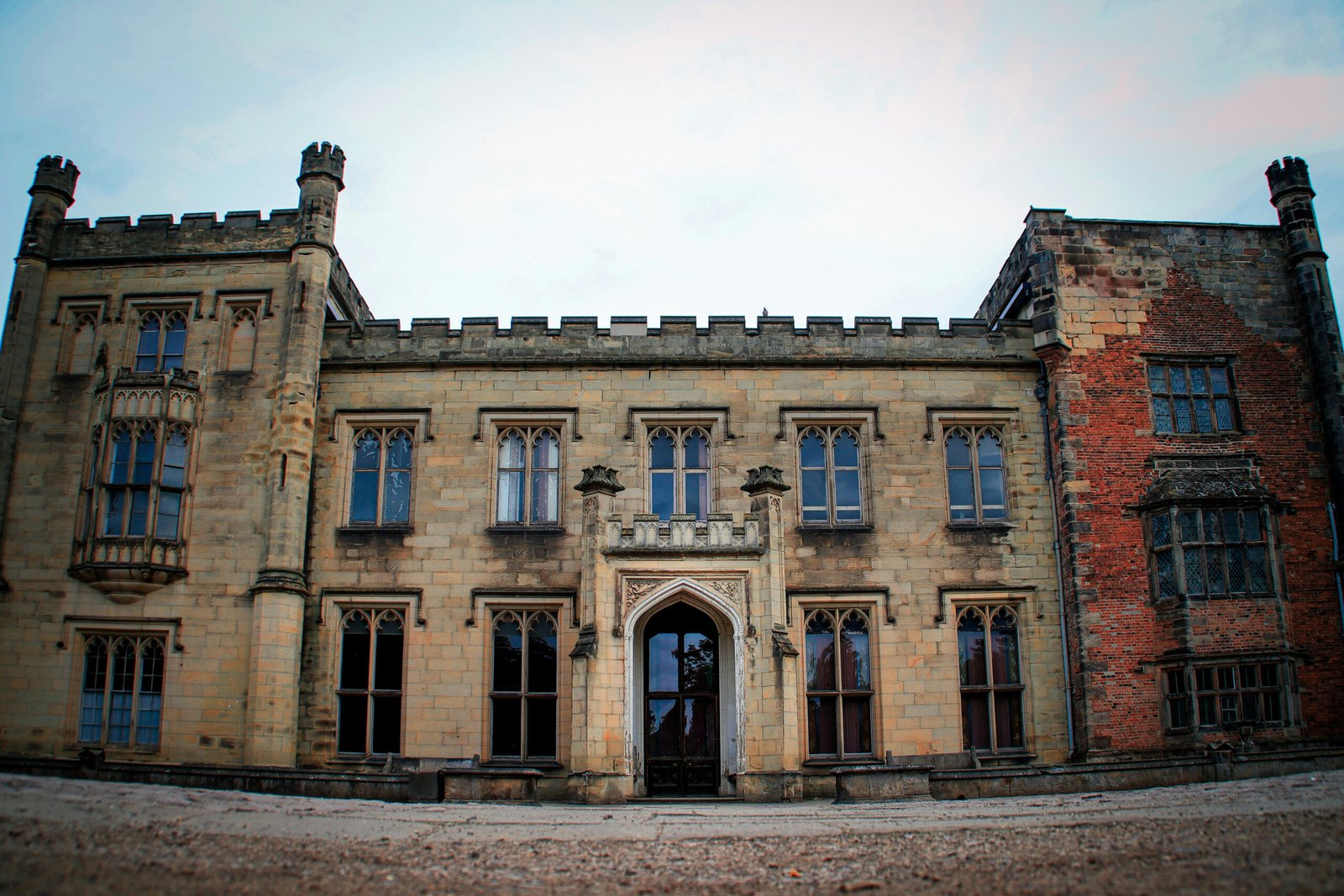In the Heart of england
Derby, located in the heart of England, serves as both a city and a unitary authority area within the county of Derbyshire. The River Derwent, which flows through the city, has historically provided a vital waterway for trade, fostering economic growth and urban development.
Over the centuries, Derby has played a prominent role in the industrial revolution, being known as a center for textile and heavy industry. The notable presence of the Industrial Revolution in Derbyshire is evidenced by its pioneering manufacturing sectors, including the famous Derby porcelain production and the establishment of important railway systems. These historic industries have left an indelible mark on the city’s character, evident in its architecture and attractions.
Culturally, Derby offers a vibrant mix of arts, music, and festivals that reflect its dynamic community spirit. The Derby Festival, for instance, showcases local talents and celebrates the diverse cultural influences that shape the city. Additionally, institutions like the Derby Museum and Art Gallery house significant collections, illustrating the region's artistic importance and commitment to heritage conservation.
Geographically, Derby is strategically positioned, providing easy access to the beautiful Peak District National Park to the north and an assortment of charming towns and villages throughout Derbyshire. This proximity enhances its appeal as a tourist destination, attracting visitors interested in exploring both urban attractions and natural landscapes. As potential tourists explore Derby, they will discover that the city is not just a historic center but also a thriving contemporary locale with much to offer, blending the old with the new seamlessly.
Places
Derby Highlights

The Museum of Making
The Silk Mill in Derby holds a significant place in the history of industrial development, often regarded as one of the world’s first factories. Established in the late 18th century, it played a pivotal role in the evolution of the textile industry, serving as a hub for silk production during a period of remarkable innovation. The Mill's contribution to manufacturing and technology cannot be overstated, as it exemplifies the shift from traditional handcraft methods to mechanized production processes.
Following its closure as an operational factory, The Silk Mill underwent a remarkable transformation into a museum (renamed the Museum of Making in 2021) that showcases its rich industrial heritage. Today's visitors can delve into the stories that defined this historic site through a series of engaging exhibits that highlight the development of the textile industry in Derby and beyond. The museum features a variety of artifacts, from intricate looms to silk samples, offering insights into the craftsmanship that characterized this era. One of the appealing aspects of The Silk Mill is its incorporation of modern interactive features, which have been thoughtfully designed to educate and engage visitors of all ages. From informative displays to practical demonstrations, the museum creates a unique environment where learning about industrial history merges with contemporary educational tools.

Historical Quarters
Derby, a city steeped in history, boasts distinct historic quarters that showcase its rich architectural heritage. The significance of these areas lies not only in their physical structures but also in the stories they tell about the city's evolution over centuries. The city center, particularly around Iron Gate and the Cathedral Quarter, is characterized by an array of buildings that reflect various architectural styles, from medieval to Georgian and Victorian.
One of the notable highlights in Derby’s Historic Quarters is the stunning Derby Cathedral. Established in the 16th century, it features an impressive tall tower and intricate stonework. Visitors are often captivated by its serene atmosphere and striking stained-glass windows, which serve as a testament to the importance of religious architecture in the area. The Cathedral Quarter also houses several quaint shops and cafes tucked away in its narrow streets, offering a vibrant atmosphere that complements the historical backdrop.
Another significant street is Sadler Gate, which retains many of its original features and is home to a range of independent boutiques and eateries. Walking along this charming thoroughfare allows visitors to appreciate the city’s commitment to preserving its architectural integrity while embracing modernity. Furthermore, the adjacent Strand and Tithe Barn Lane present opportunities to engage with artistic and cultural hotspots, including galleries that showcase local talent.

Elvaston Castle Country Park
Elvaston Castle Country Park is a remarkable destination that captures the essence of natural beauty intertwined with historical significance. Situated just a few miles from Derby, this expansive park covers approximately 200 acres and is home to an impressive Victorian Gothic castle that dates back to the early 19th century. The castle itself, currently undergoing restoration, offers a glimpse into the rich architectural heritage that defines this enchanting location. Visitors are often drawn to the park not only for its historical context but also for its carefully maintained botanical gardens, which showcase a diverse array of plant species, providing a vibrant backdrop throughout the seasons.
The park is designed for an engaging experience, offering visitors a variety of activities to explore. One of the prime attractions is the abundance of walking trails that meander through picturesque landscapes, allowing guests to engage with nature while enjoying views of serene lakes and flourishing gardens. Whether one chooses a leisurely stroll or a more vigorous hike, the tranquil environment promotes relaxation and reflection. Additionally, Elvaston Castle Country Park regularly hosts seasonal events, such as outdoor concerts, art exhibitions, and guided history tours, which draw both locals and tourists alike, fostering a sense of community and cultural appreciation.
